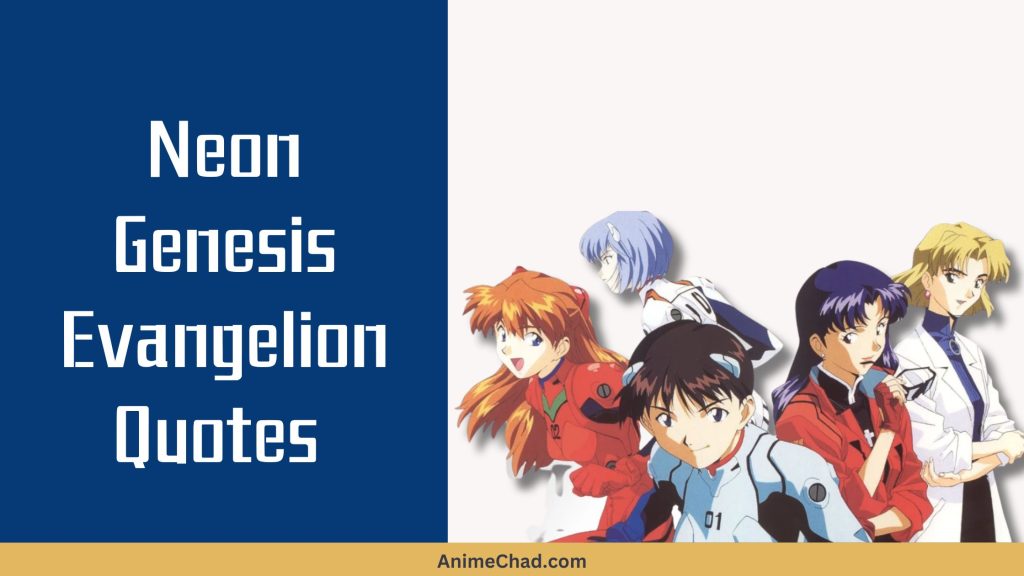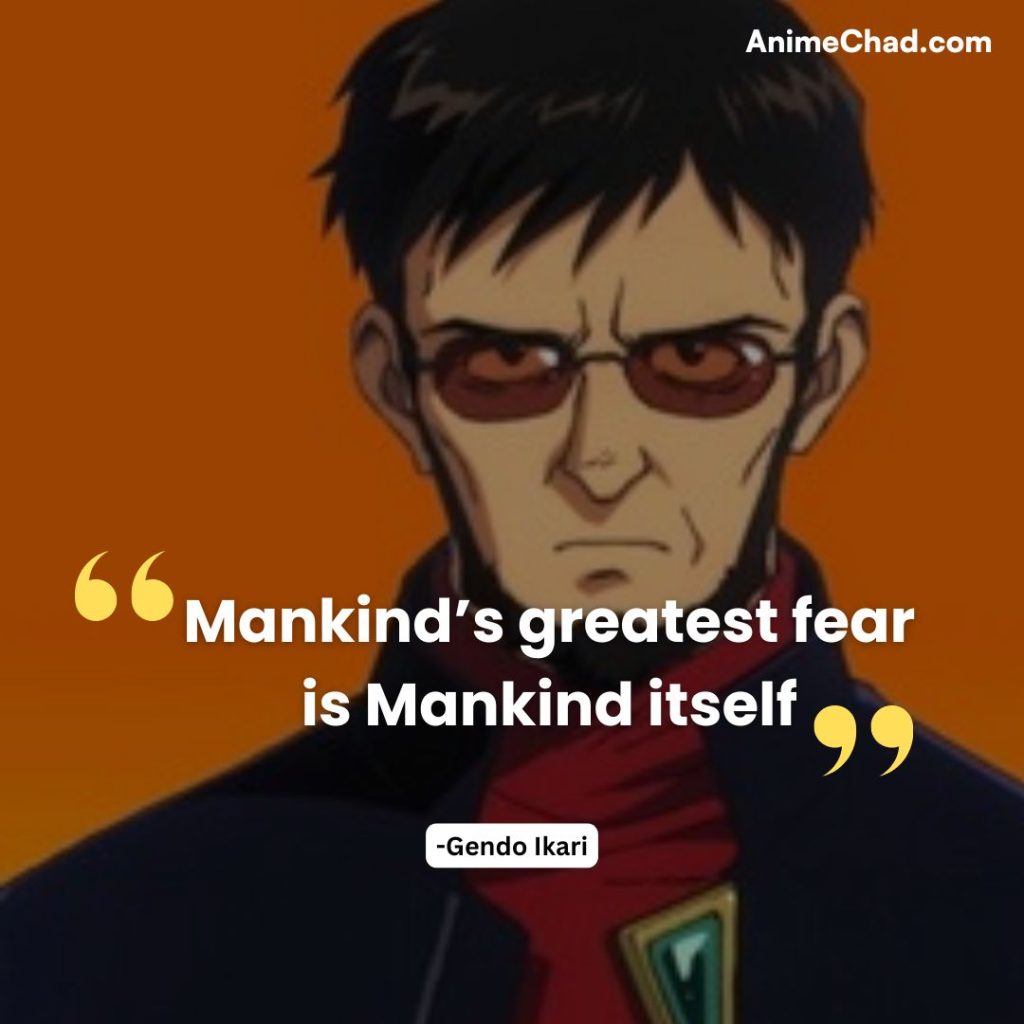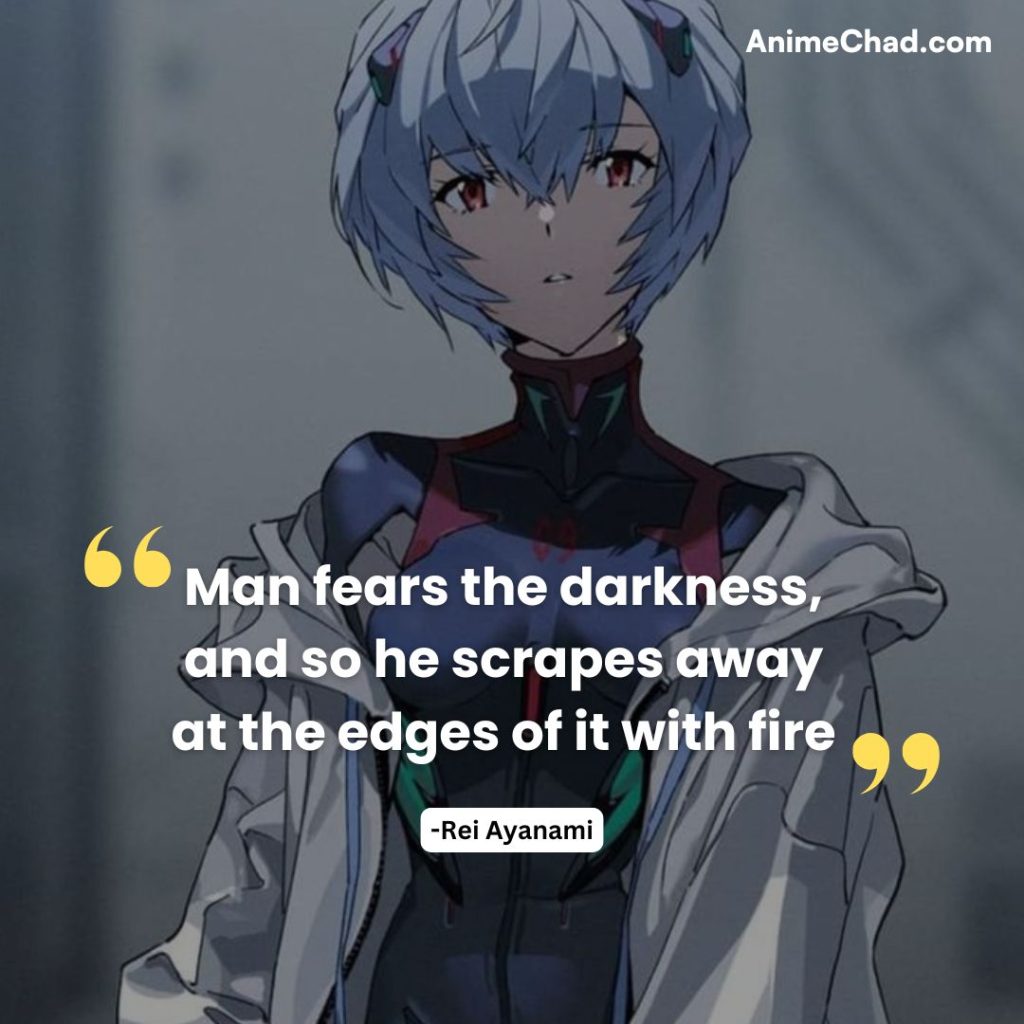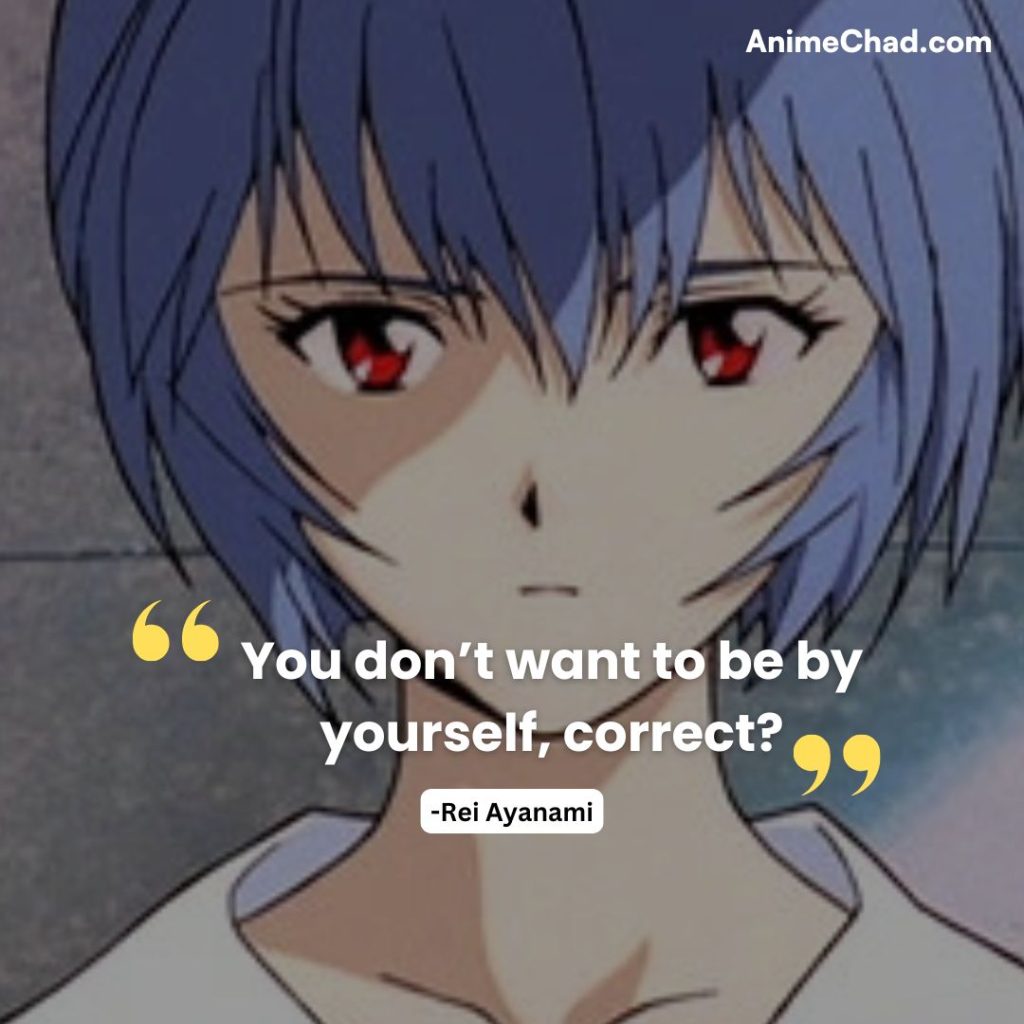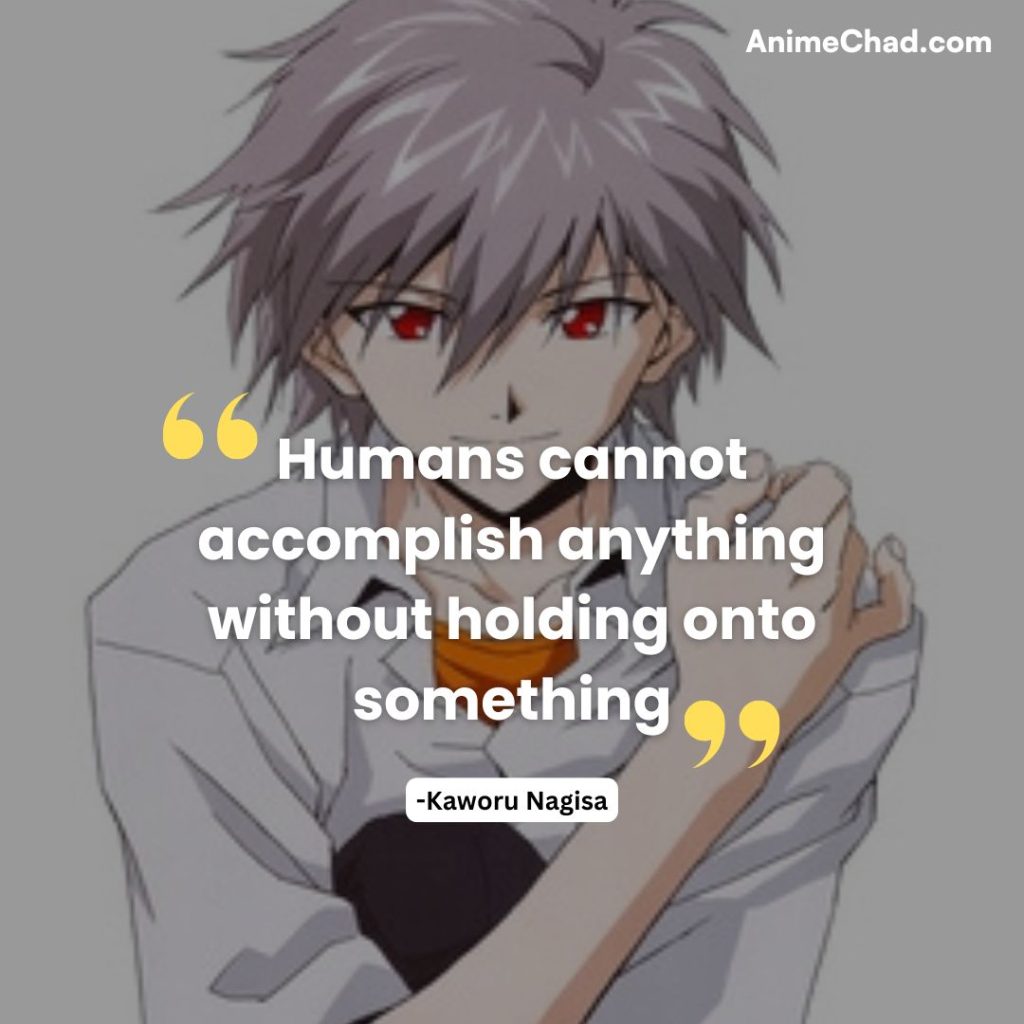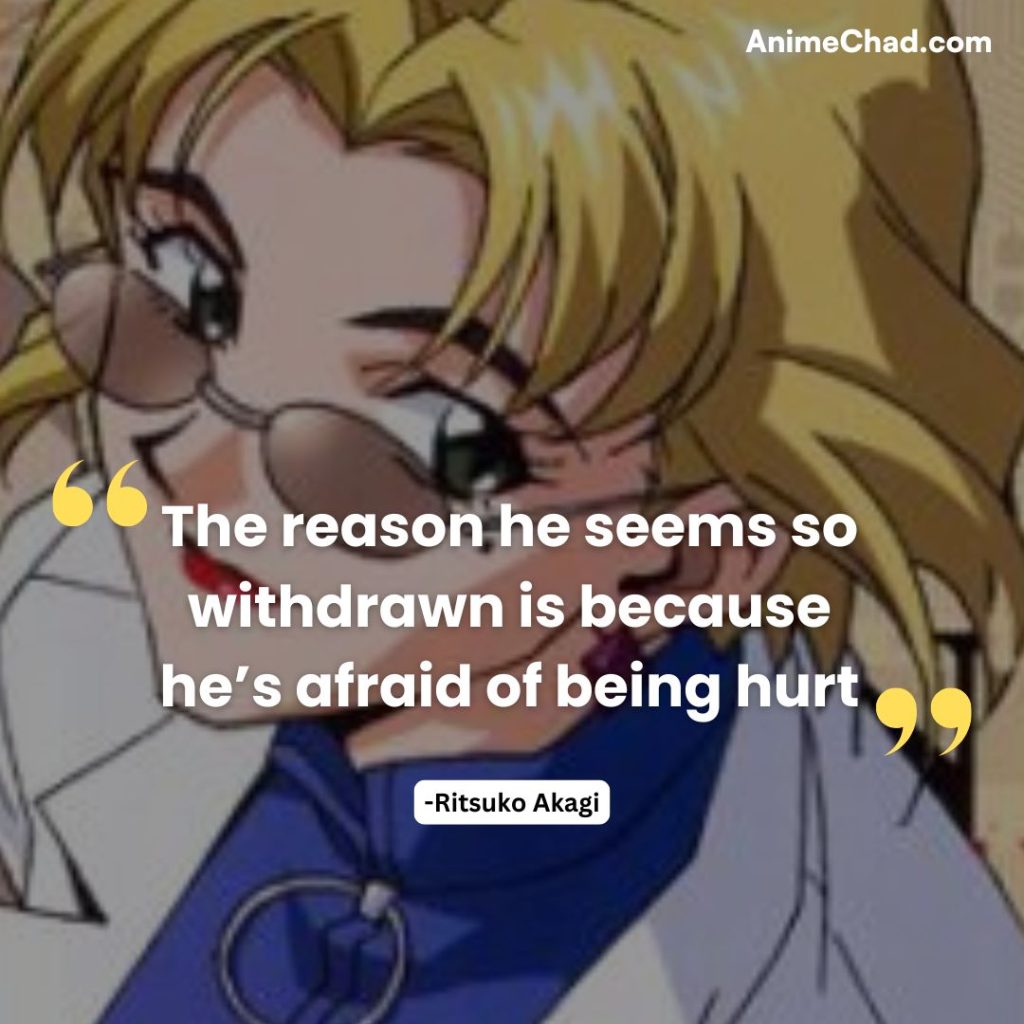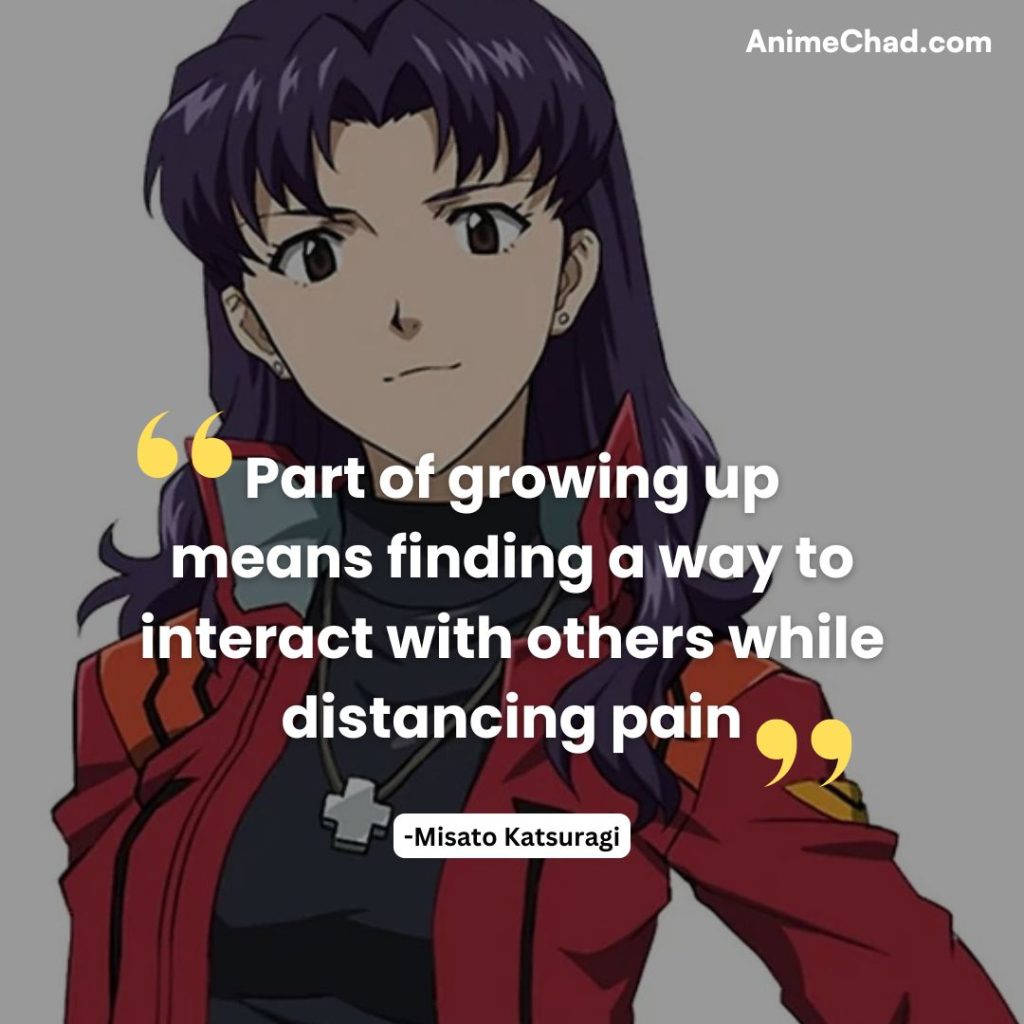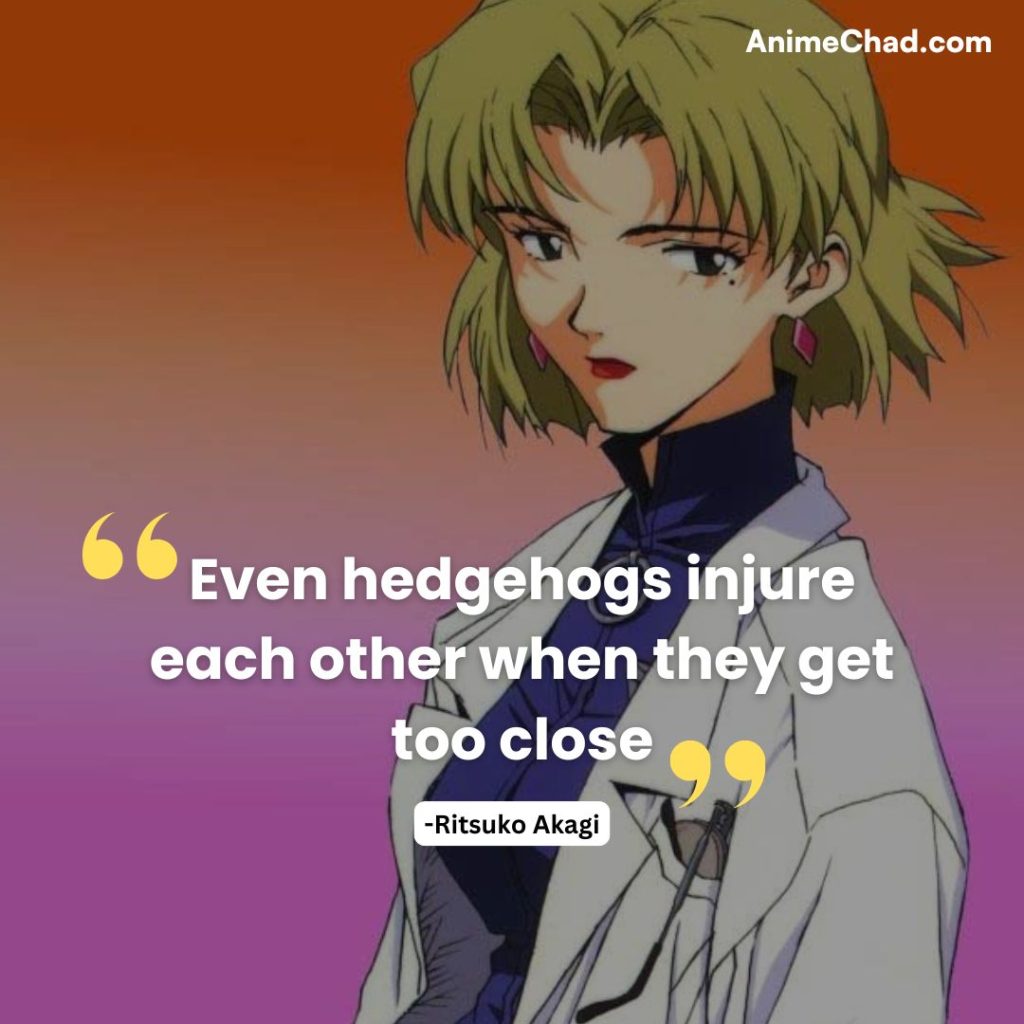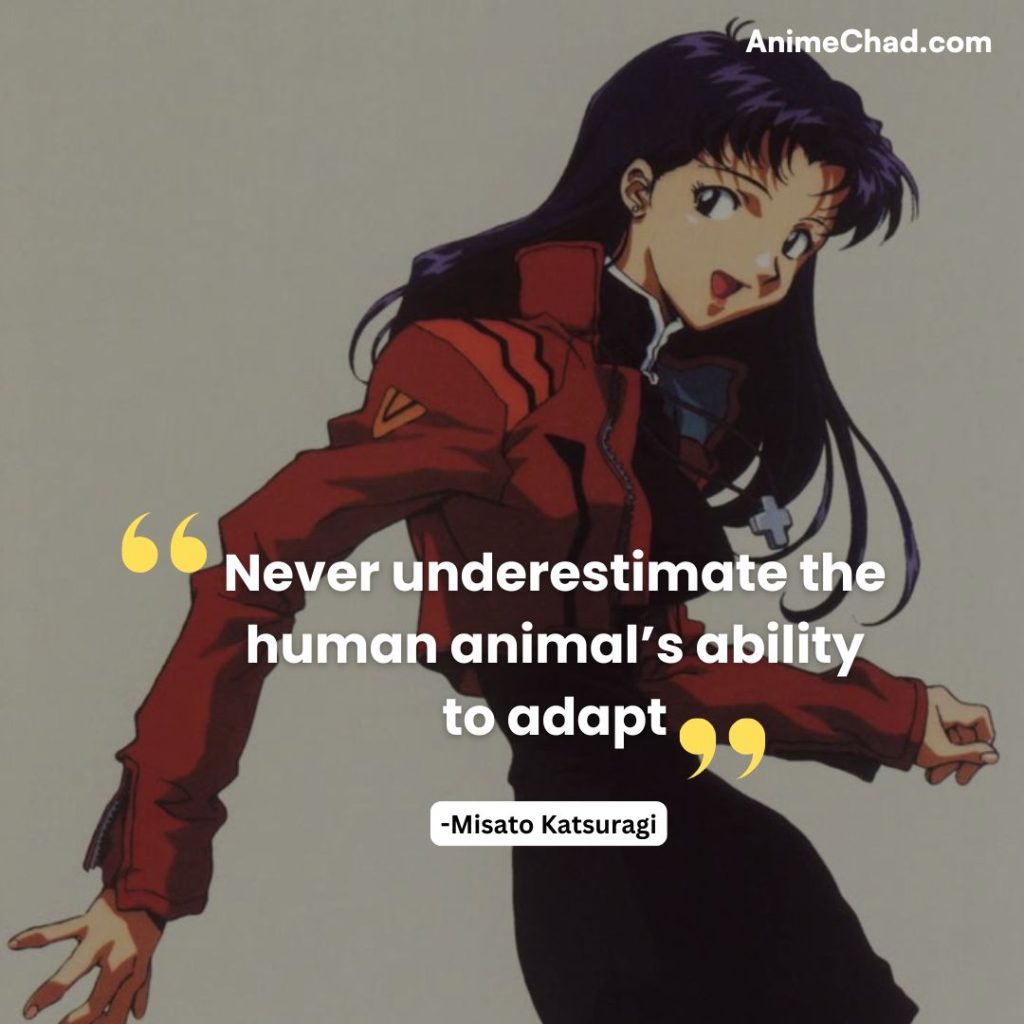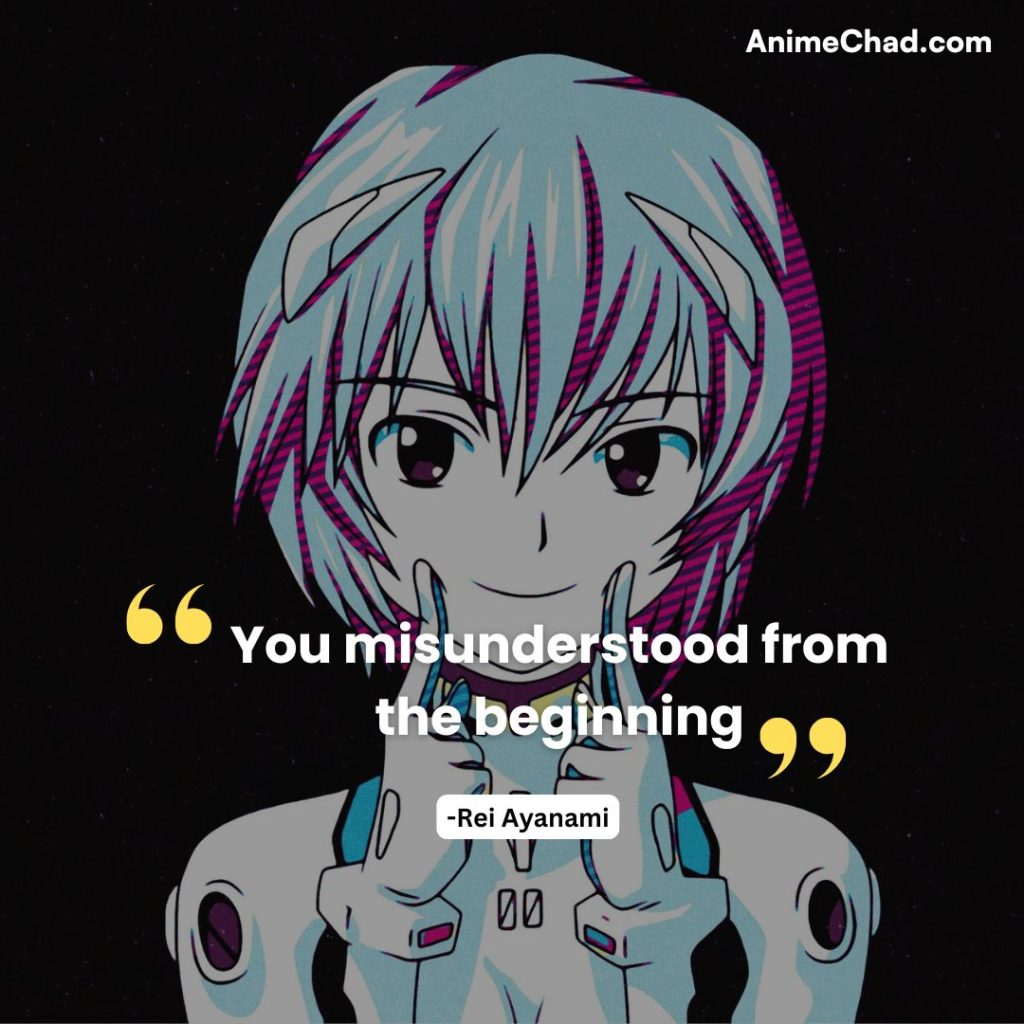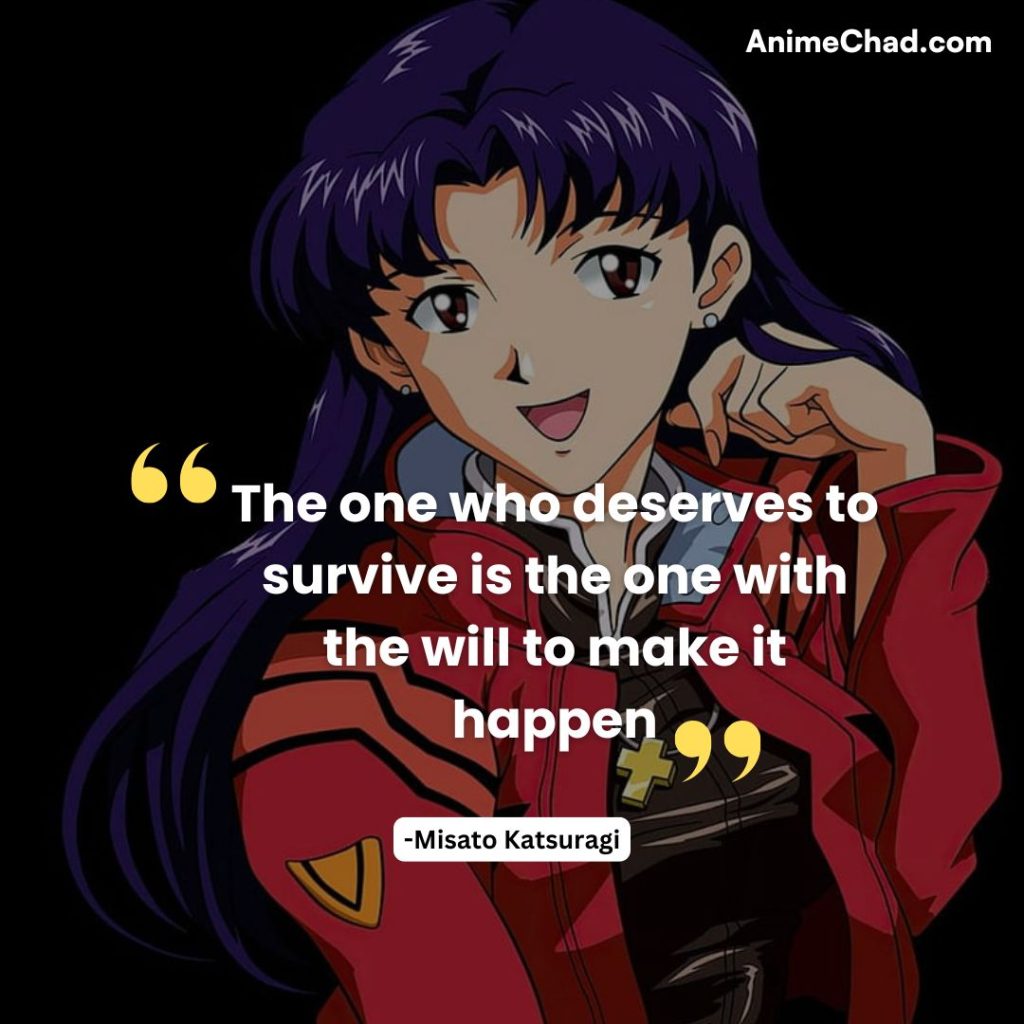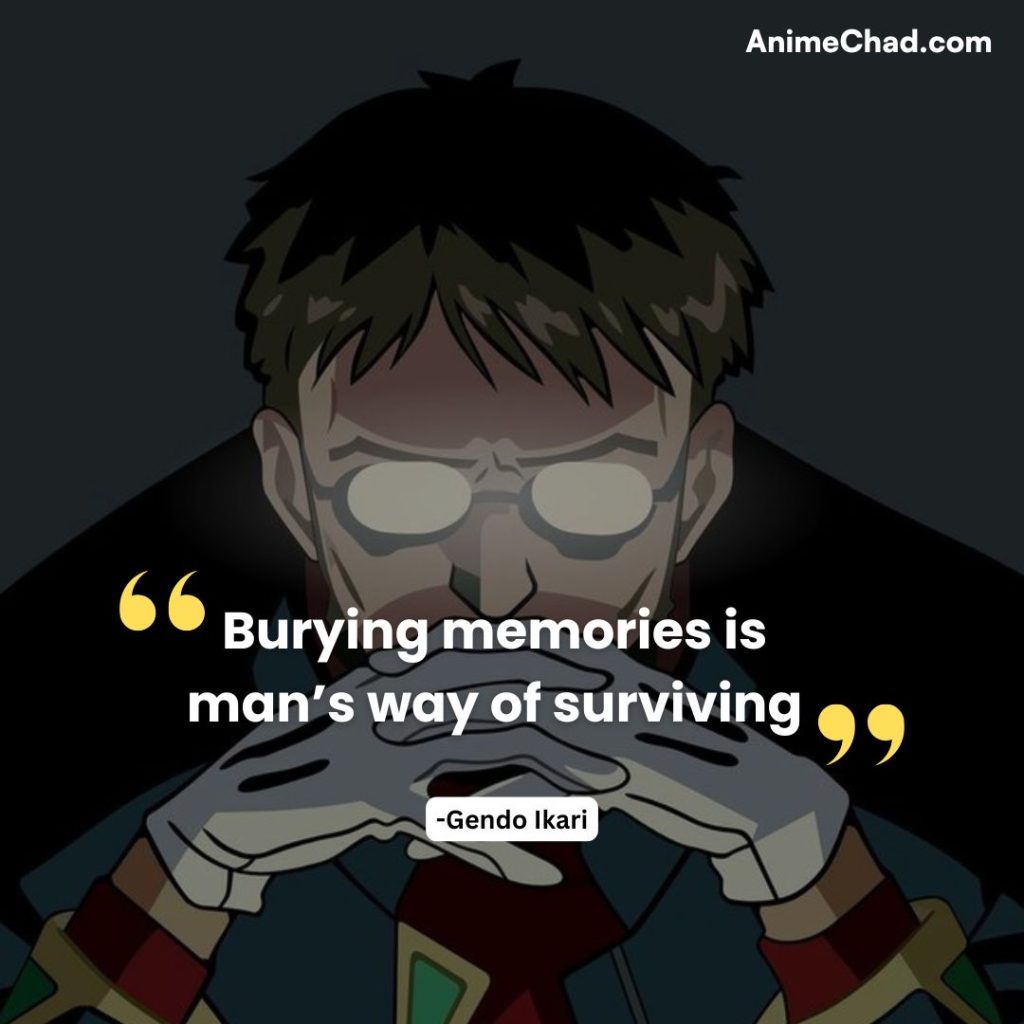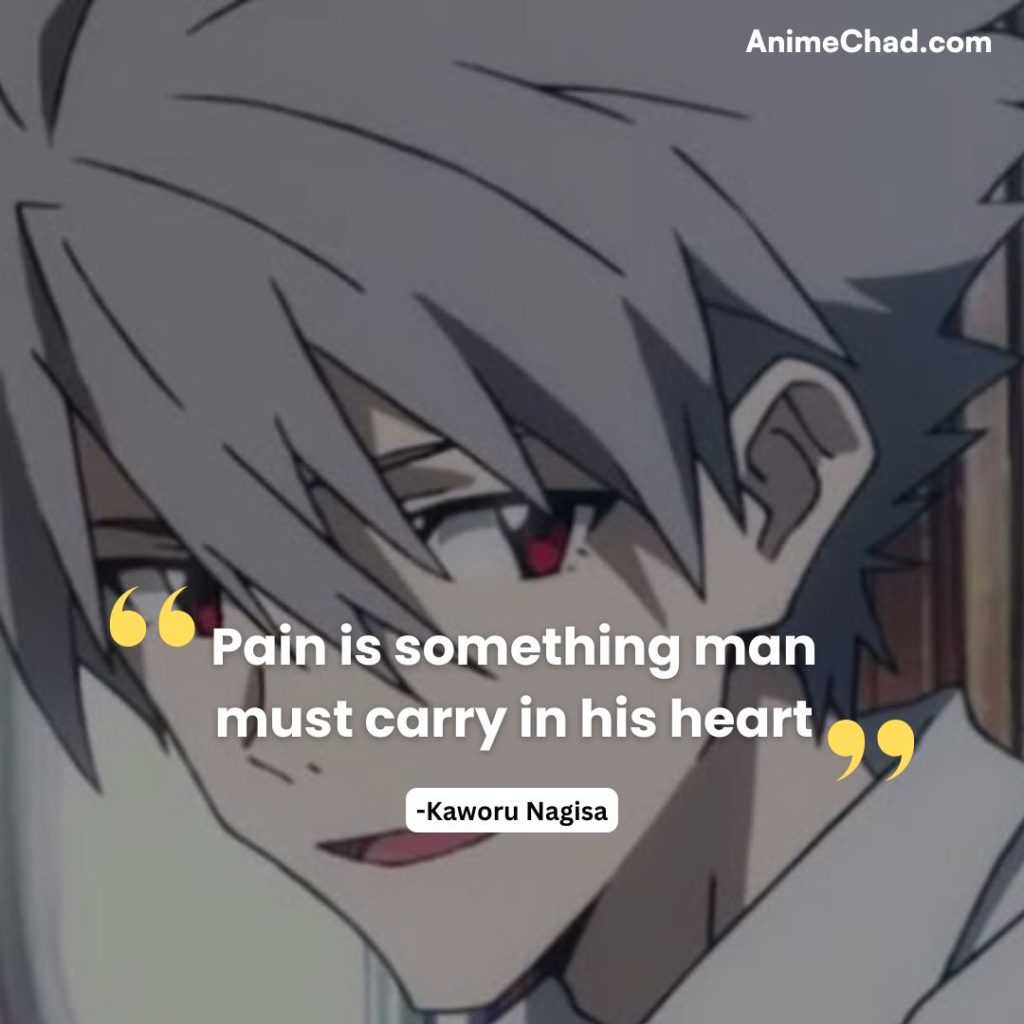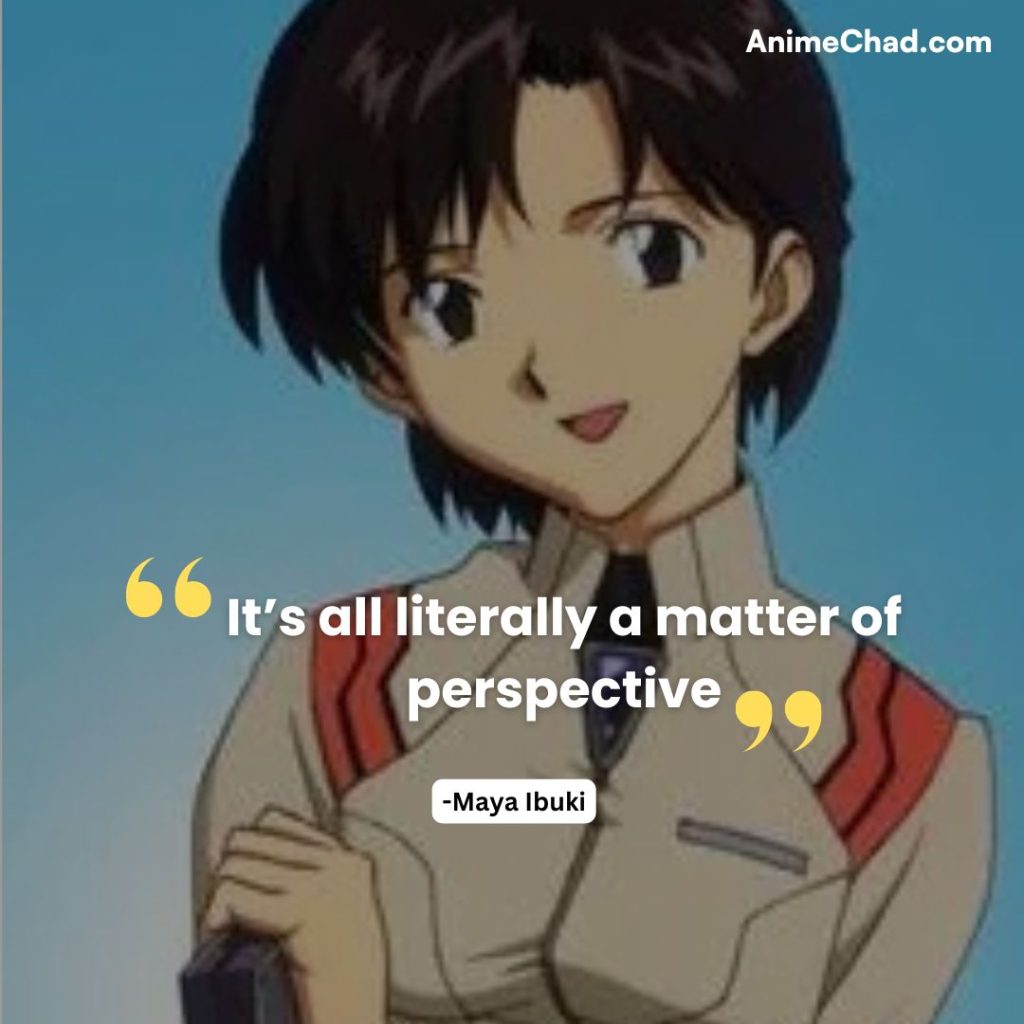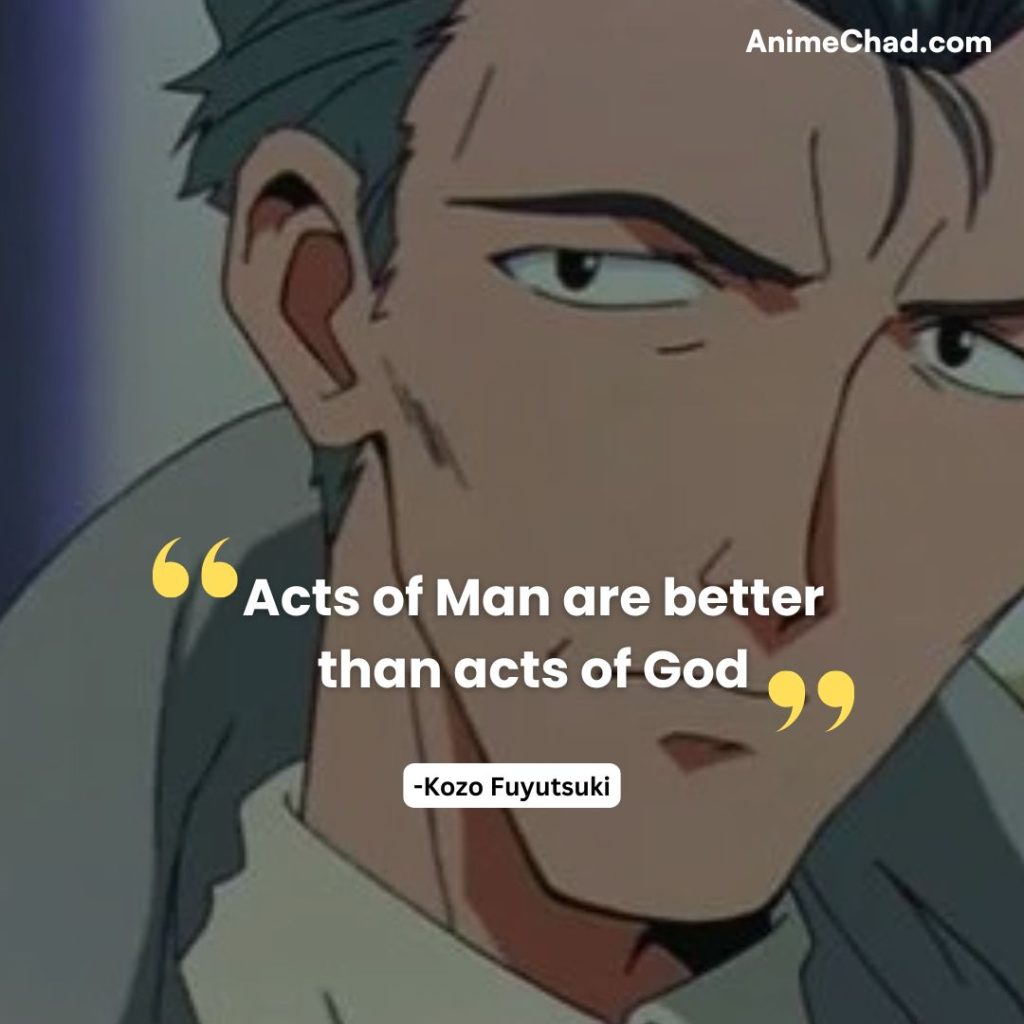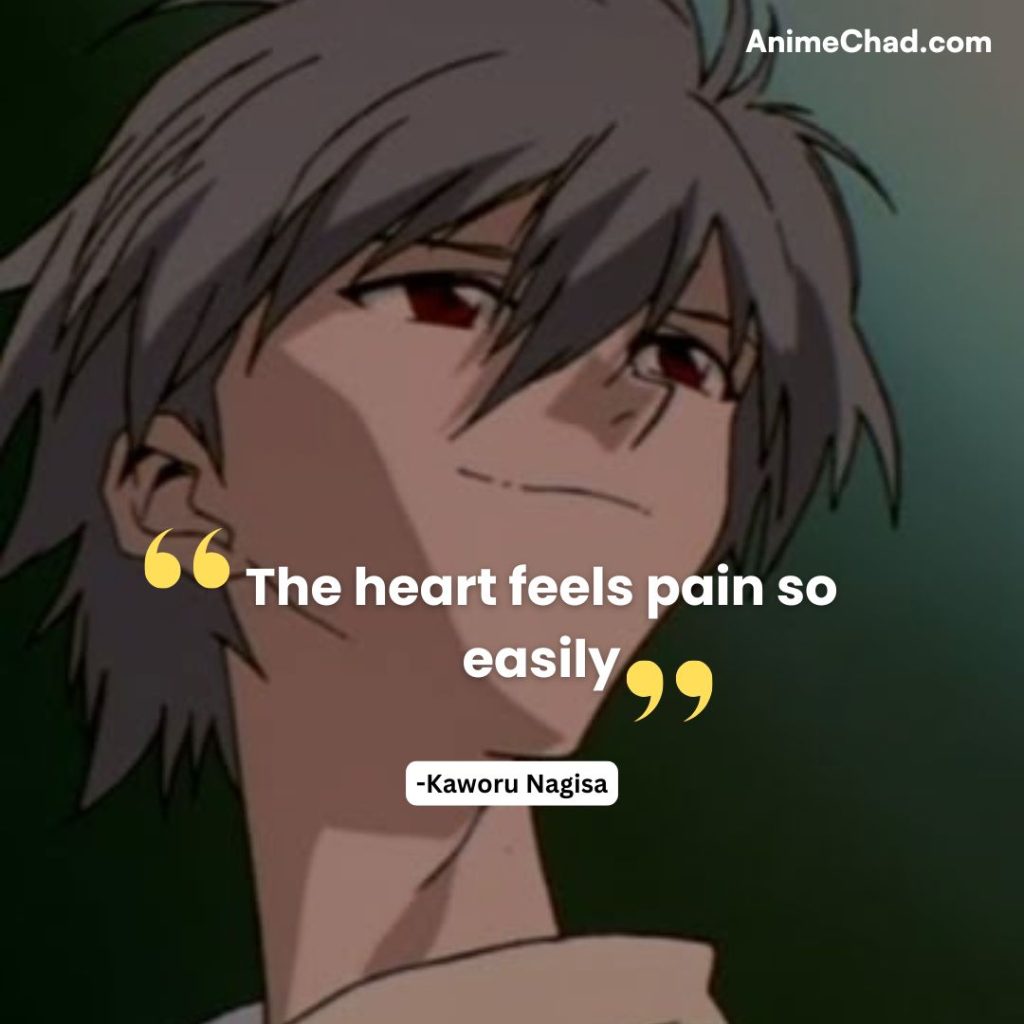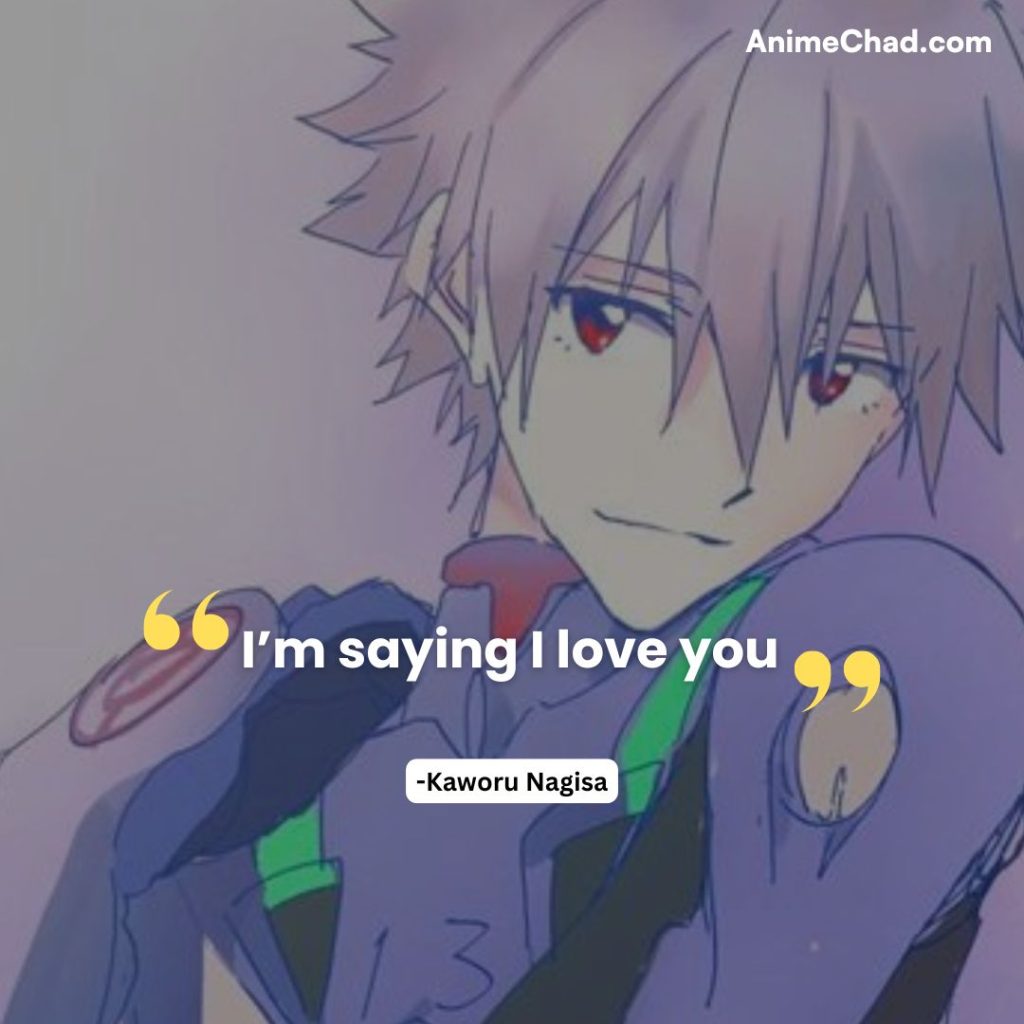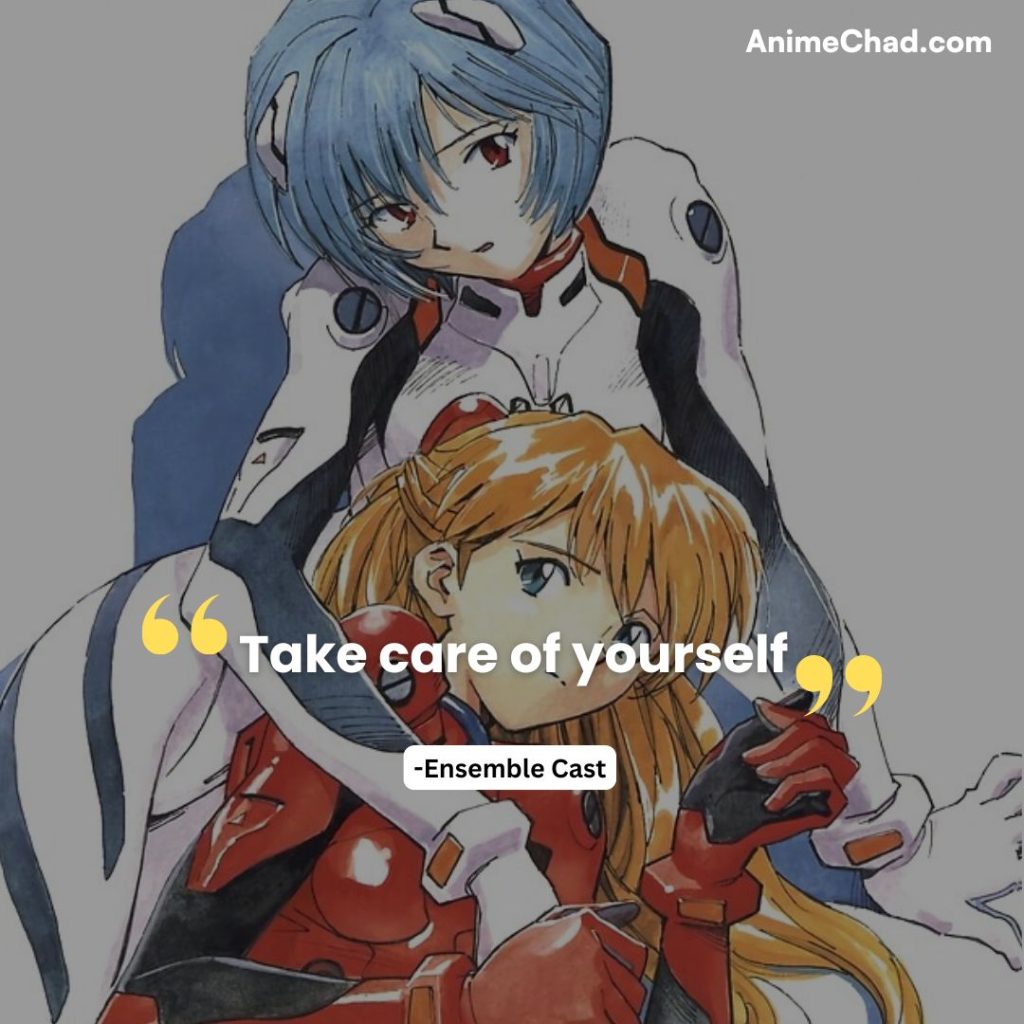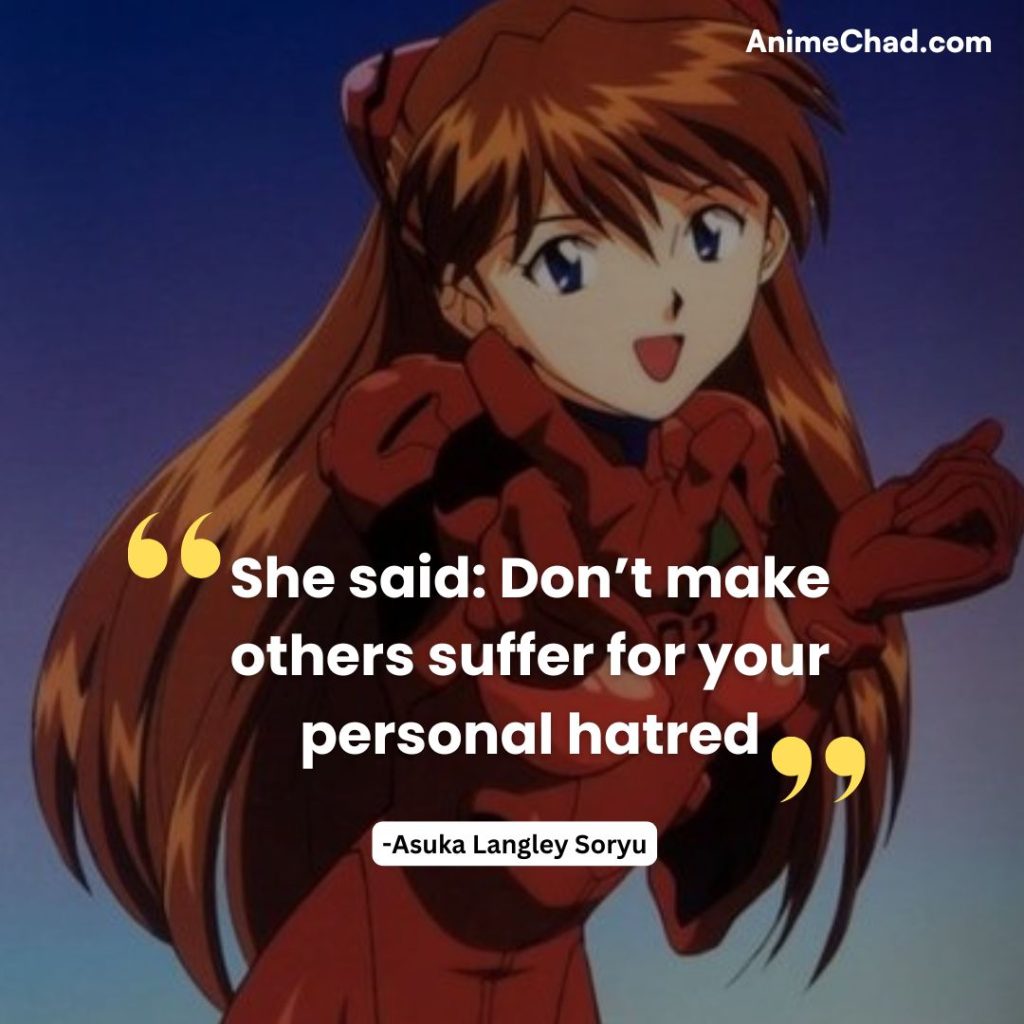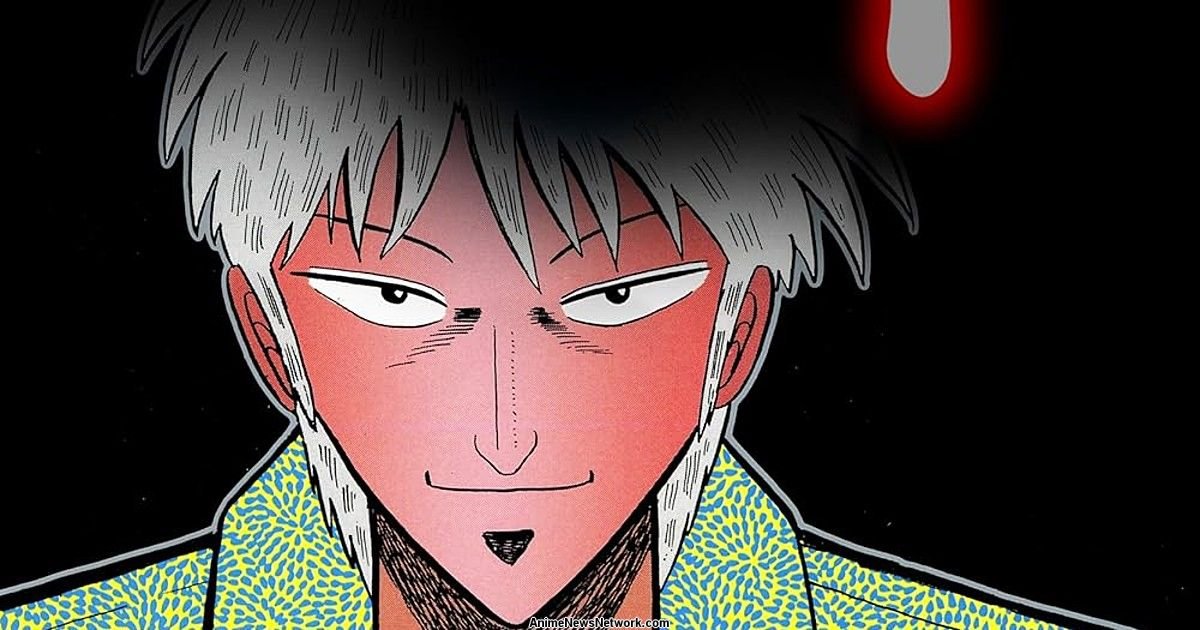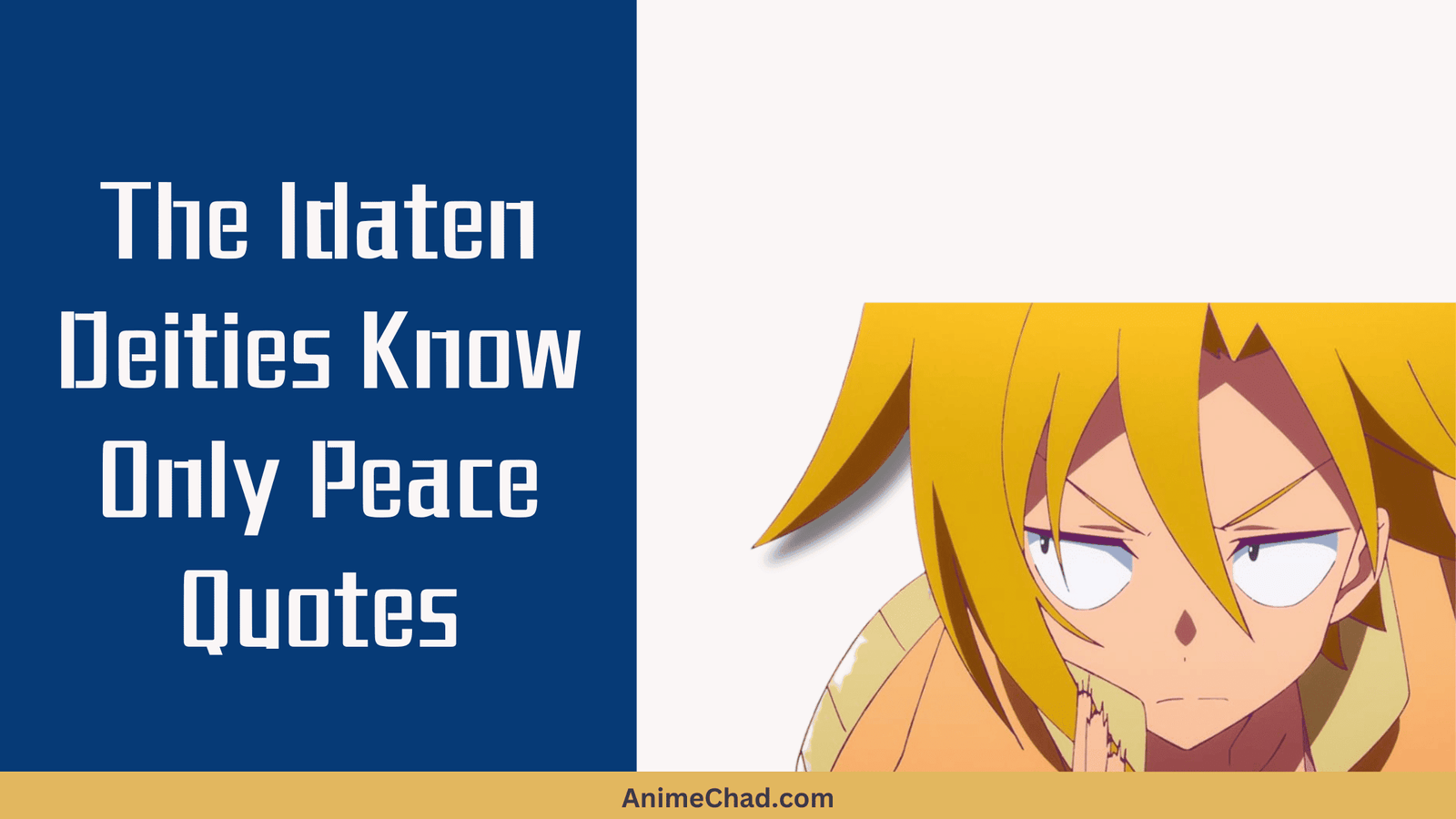Neon Genesis Evangelion follows Shinji Ikari, a reluctant mecha pilot grappling with existential dread and fractured relationships in a post-apocalyptic world.
The series dissects themes of isolation, identity, and the human struggle for connection through its psychologically complex characters. This collection captures 25 pivotal quotes that reflect the show’s philosophical depth and emotional resonance.
I mustn’t run away! I mustn’t run away!
Episode Details: Episode 1 (“Angel Attack”)
Speaker: Shinji Ikari
Context: Shinji’s mantra during his first Angel battle, symbolizing his struggle to confront trauma rather than retreat.
Anywhere can be paradise as long as you have the will to live
Episode Details: Episode 12 (“The Value of Miracles”)
Speaker: Yui Ikari
Context: Yui’s letter to Fuyutsuki underscores hope and agency amid despair, foreshadowing Instrumentality’s themes.
Mankind’s greatest fear is Mankind itself
Episode Details: Episode 14 (“Seele, the Seat of the Soul”)
Speaker: Gendo Ikari
Context: Gendo rationalizes NERV’s secrecy, highlighting humanity’s self-destructive tendencies.
Man fears the darkness, and so he scrapes away at the edges of it with fire
Episode Details: Episode 5 (“Rei I”)
Speaker: Rei Ayanami
Context: Rei’s poetic reflection on human vulnerability during her existential monologue.
You don’t want to be by yourself, correct?
Episode Details: Episode 23 (“Rei III”)
Speaker: Rei Ayanami
Context: Rei confronts Shinji’s isolation, mirroring her own longing for connection.
Humans cannot accomplish anything without holding onto something
Episode Details: Episode 24 (“The Final Messenger”)
Speaker: Kaworu Nagisa
Context: Kaworu critiques human limitations while expressing empathy for Shinji’s fragility.
The reason he seems so withdrawn is because he’s afraid of being hurt
Episode Details: Episode 6 (“Rei II”)
Speaker: Ritsuko Akagi
Context: Ritsuko analyzes Shinji’s defenses, revealing her own emotional detachment.
Part of growing up means finding a way to interact with others while distancing pain
Episode Details: Episode 8 (“Asuka Strikes!”)
Speaker: Misato Katsuragi
Context: Misato advises Shinji, masking her own inability to form healthy relationships.
Even hedgehogs injure each other when they get too close
Episode Details: Episode 4 (“Rain, After Running Away”)
Speaker: Ritsuko Akagi
Context: Ritsuko explains the Hedgehog’s Dilemma, framing the series’ core conflict.
I’m the one who deserved to be hit!
Episode Details: Episode 19 (“Introjection”)
Speaker: Shinji Ikari
Context: Shinji’s self-loathing peaks after failing to protect Toji, catalyzing his breakdown.
Never underestimate the human animal’s ability to adapt
Episode Details: Episode 7 (“The Human Creation”)
Speaker: Misato Katsuragi
Context: Misato’s sardonic remark about NERV’s manipulation of trauma for survival.
You misunderstood from the beginning
Episode Details: Episode 23 (“Rei III”)
Speaker: Rei Ayanami
Context: Rei rejects Gendo’s control, asserting her agency before self-destructing.
The one who deserves to survive is the one with the will to make it happen
Episode Details: Episode 26 (“Take care of yourself”)
Speaker: Misato Katsuragi
Context: Misato’s final plea to Shinji during Instrumentality, urging self-determination.
Burying memories is man’s way of surviving
Episode Details: Episode 21 (“The Birth of NERV”)
Speaker: Gendo Ikari
Context: Gendo justifies his obsession with Yui while dismissing Shinji’s pain.
Pain is something man must carry in his heart
Episode Details: Episode 24 (“The Final Messenger”)
Speaker: Kaworu Nagisa
Context: Kaworu accepts mortality, challenging Shinji to find meaning in suffering.
God knows I’m not perfect
Episode Details: Episode 15 (“Lies and Silence”)
Speaker: Misato Katsuragi
Context: Misato confesses her flaws while drunkenly bonding with Shinji.
It’s all literally a matter of perspective
Episode Details: Episode 9 (“Both of You, Dance Like You Want to Win!”)
Speaker: Maya Ibuki
Context: Maya’s meta-commentary during a sync-rate test, hinting at subjective reality.
As long as the Sun, Moon, and Earth exist, everything will be all right
Episode Details: The End of Evangelion
Speaker: Yui Ikari
Context: Yui comforts Shinji during Instrumentality, reaffirming life’s resilience.
Congratulations!
Episode Details: Episode 26 (“The Beast that Shouted Love”)
Speaker: Ensemble Cast
Context: Ambiguous finale line celebrating Shinji’s tentative self-acceptance.
I’m so fucked up
Episode Details: Episode 20 (“Weaving a Story”)
Speaker: Shinji Ikari
Context: Shinji’s raw admission during a mental collapse, rejecting societal expectations.
Acts of Man are better than acts of God
Episode Details: Episode 9 (“Both of You, Dance Like You Want to Win!”)
Speaker: Kozo Fuyutsuki
Context: Fuyutsuki critiques Seele’s Instrumentality plan, advocating human agency.
Why don’t you just try smiling?
Episode Details: Episode 3 (“The Silent Phone”)
Speaker: Kensuke Aida
Context: Kensuke’s naive advice contrasts with Shinji’s deepening depression.
The heart feels pain so easily
Episode Details: Episode 24 (“The Final Messenger”)
Speaker: Kaworu Nagisa
Context: Kaworu empathizes with Shinji’s loneliness before his sacrificial death.
I’m saying I love you
Episode Details: Episode 24 (“The Final Messenger”)
Speaker: Kaworu Nagisa
Context: Kaworu’s ambiguous confession challenges Shinji’s understanding of intimacy.
Take care of yourself
Episode Details: Episode 26 (“Take care of yourself”)
Speaker: Ensemble Cast
Context: Final title card emphasizing self-care as a radical act.
She said: Don’t make others suffer for your personal hatred
Episode Details: The End of Evangelion
Speaker: Asuka Langley Soryu
Context: Asuka’s defiant last words, rejecting collective annihilation for individuality.

